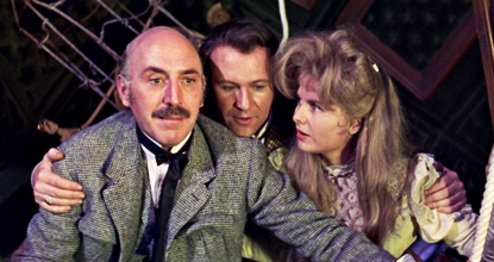
Kennedy makes an appearance on a television screen. A creatively shot scene takes the viewer up a tall elevator on the launchpad, revealing each letter emblazoned on the side of a rocket as it goes: U-N-I-T-E-D-S-T-A-T-E-S. The flag appears on space suits and in archival news footage of elated crowds, and on the surface of the moon as the Apollo spacecraft departs after a successful mission.

If critics want explicitly American symbols, there are plenty. Such moments clearly illustrate the stakes of what the United States was trying to do and the sacrifices it had to endure, which makes its ultimate success that much more triumphant. And it shows the intense resolve to continue in the face of loss: We grieve with Armstrong at the funerals of astronauts whose missions ended in tragedy. It depicts years of extensive training: We see astronauts braving the physical rigors of spaceflight firsthand, their bodies bruised, bloodied, singed, and burned. It provides a tour of increasingly advanced engineering: We join Armstrong in nerve-wracking, claustrophobic rides aboard an X-15 plane, a Gemini capsule, a lunar-landing simulator, and then, finally, the Apollo spacecraft. It also could have been completely avoided if the critics had actually, you know, seen it.įirst Man is a 141-minute commercial for a uniquely American brand of determination and achievement. The controversy was quite short-lived, and may even have boosted interest in the film. (A producer on the film later told me that Aldrin was consulted frequently during filming, and liked the completed movie.) “History sure can be inconvenient when patriotism makes you queasy,” wrote a critic at the National Review.Ī tweet from Buzz Aldrin, who joined Armstrong on the Apollo mission to the moon, that included the hashtags “#proudtobeanAmerican #freedom #honor #onenation” further fanned the flames.


“The American people paid for that mission, on rockets built by Americans, with American technology & carrying American astronauts. “This is total lunacy,” tweeted Senator Marco Rubio of Florida. “It’s almost like they’re embarrassed at the achievement coming from America,” President Donald Trump said. Some comments from Ryan Gosling, the actor who portrays Armstrong-that the moon landing “was widely regarded in the end as a human achievement,” that Gosling didn’t think Armstrong “viewed himself as an American hero”-only made it worse. The omission prompted an angry response from conservative leaders and writers who saw the decision as bordering on treasonous.
The first man on the moon movie movie#
After the movie debuted at the Venice Film Festival, reports began to trickle out that First Man did not feature an iconic moment of the moon landing: the planting of the American flag in lunar soil. This was the line of criticism in late August, long before the film came out. What First Man is not, however, is an unpatriotic film. An intimate portrait of the soft-spoken pilot whom NASA chose for the pivotal achievement in the saga, and his difficult journey to get there.

A dramatic retelling of a space race between two very different nations, and the maddening moments when the Soviets outmaneuvered the Americans. This article contains spoilers for First Man yes, we all know how it ends, but there’s more to it than that.įirst Man, the Neil Armstrong biopic out in theaters on Friday, is many things: a breathtaking cinematic production that pays as much attention to the accurate replication of spacecraft as it does to the stunning visual rendering of the lunar surface.


 0 kommentar(er)
0 kommentar(er)
